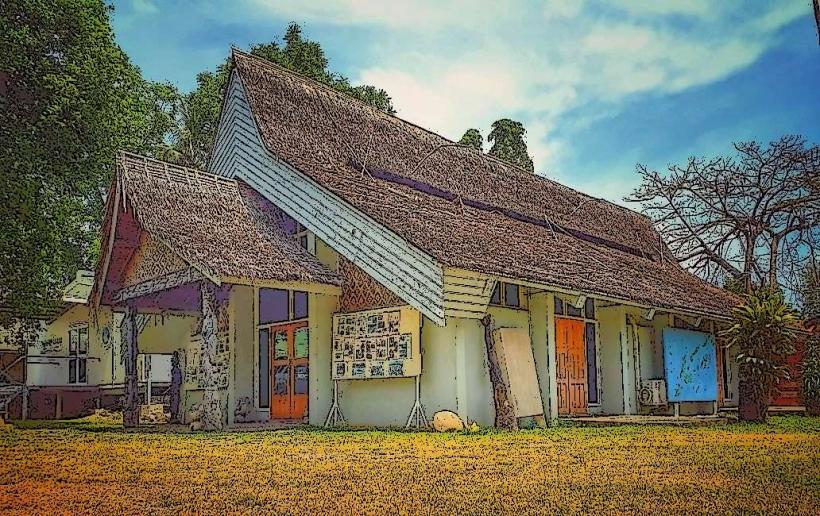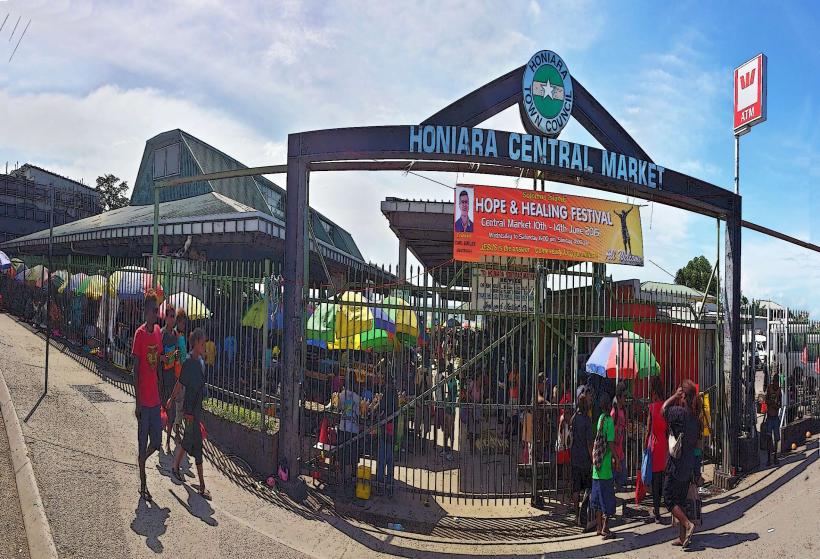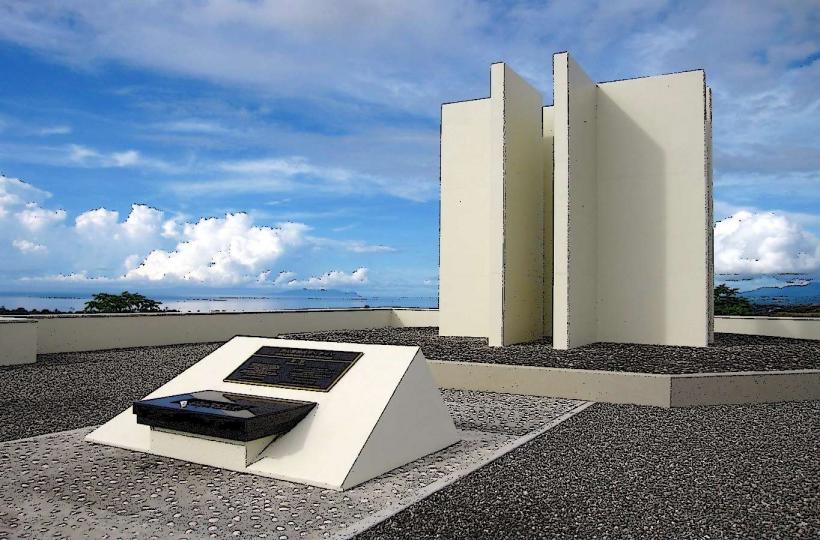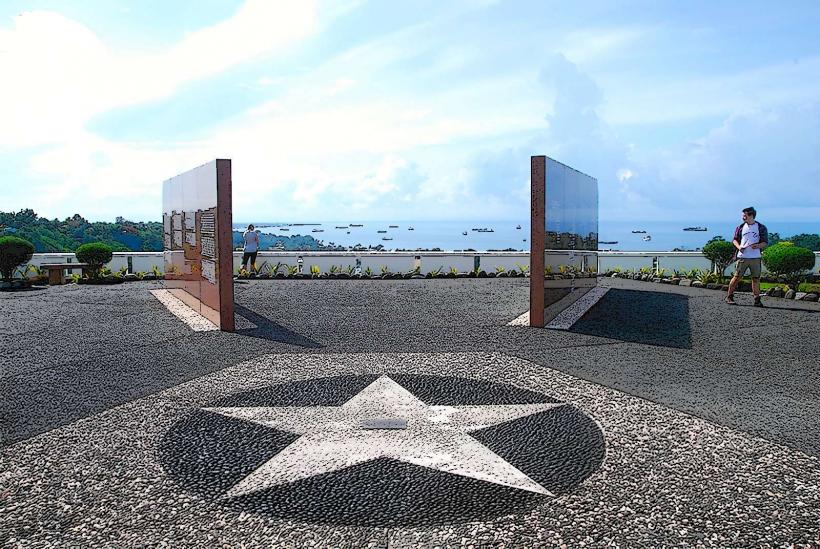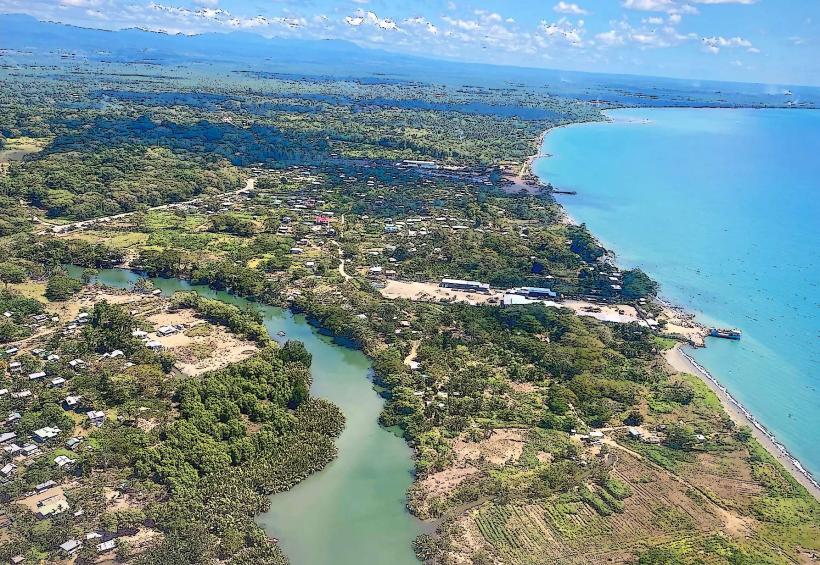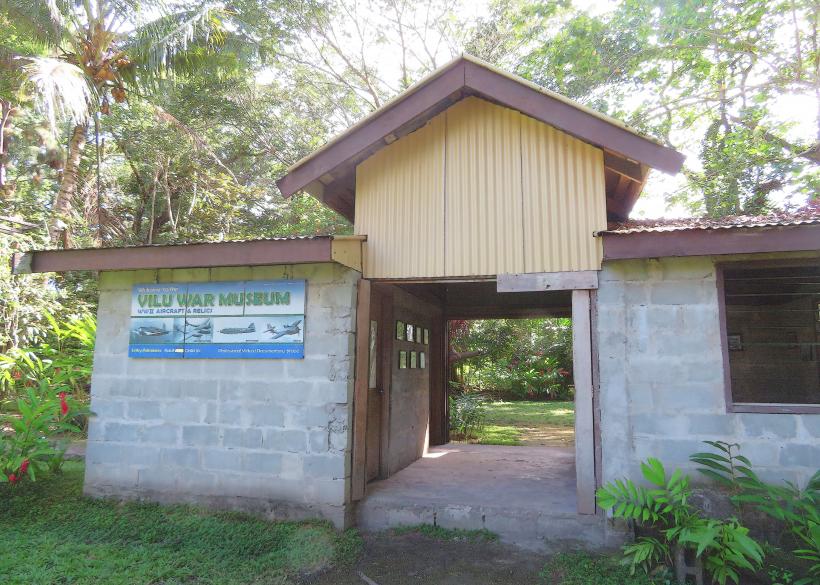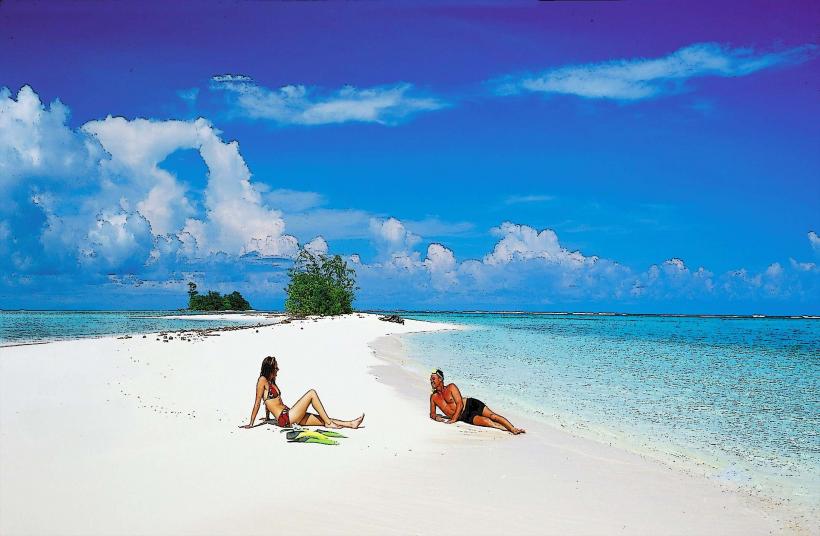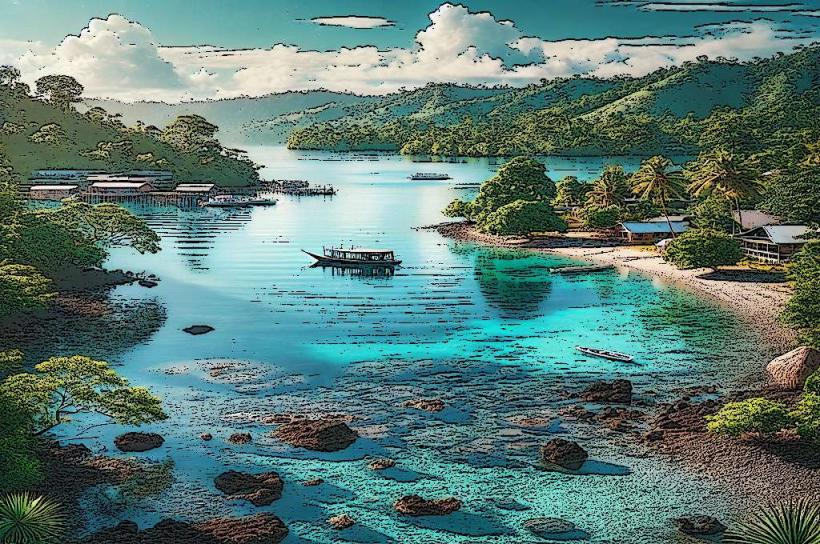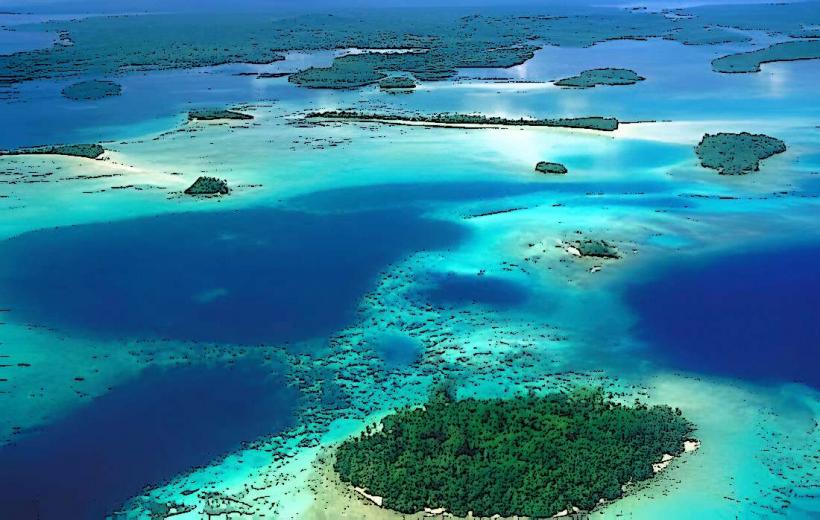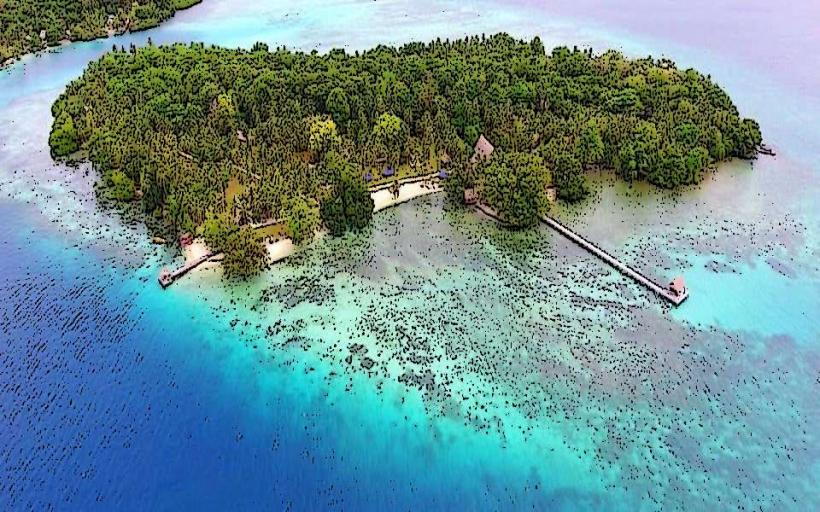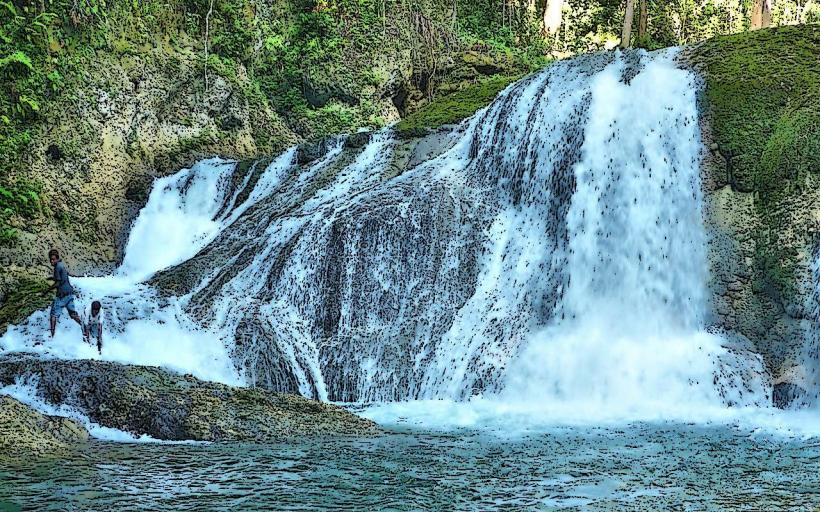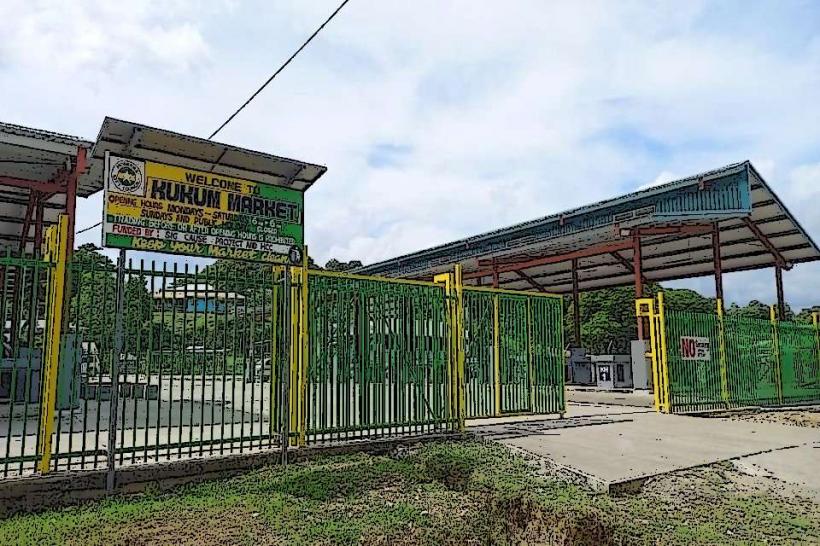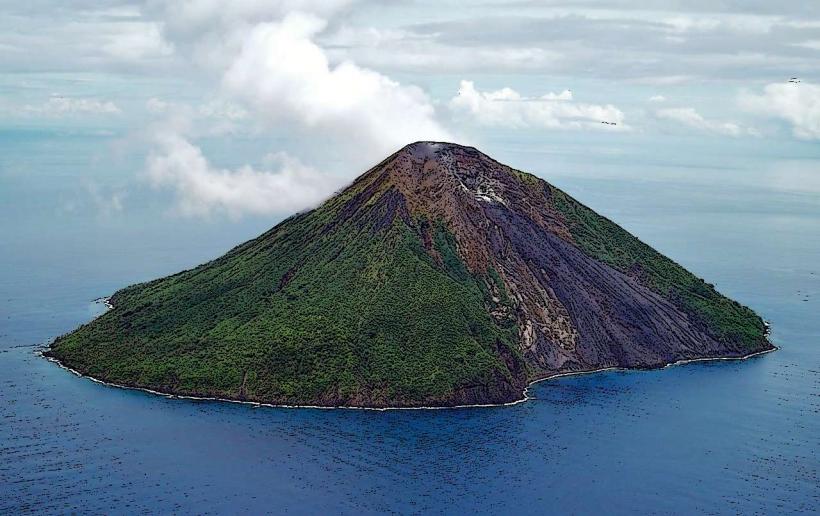Information
City: HoniaraCountry: Solomon Islands
Continent: Australia
Honiara, Solomon Islands, Australia
Honiara, the capital of the Solomon Islands, is the administrative and economic center of the nation, situated on the northwestern coast of Guadalcanal. As of 2026, the city is undergoing significant infrastructure and digital transformation to modernize its role as a regional Pacific hub.
Historical Timeline
Honiara did not exist as a town prior to World War II. It was established around the site of the U.S. military headquarters (Henderson Field) following the Guadalcanal Campaign. In 1952, it officially replaced Tulagi as the capital of the British Solomon Islands Protectorate. The late 1990s and early 2000s were marked by "The Tensions"-ethnic and political unrest-followed by major riots in 2006 and 2021. Since then, the city has focused on reconstruction and international partnerships for stability.
Demographics & Population (2026)
The estimated population of Honiara has reached approximately 121,300, reflecting a high annual growth rate of roughly 4.1%.
Youth Demographic: The population is exceptionally young; over 40% of residents are under the age of 25.
Ethnicity: Primarily Melanesian (95%), with minority Polynesian, Micronesian, and a significant Chinese merchant community.
Urbanization: Rapid rural-to-urban migration continues to strain the city's housing and informal settlement infrastructure.
Urban Layout & Districts
Point Cruz: The central business district and primary port; houses government buildings and major banks.
Mendana Avenue: The main thoroughfare running parallel to the coast, containing the majority of commercial activity.
Chinatown: Located along the Mataniko River, historically the commercial heart, currently being revitalized after past unrest.
Henderson: The eastern district housing the international airport and industrial zones.
White River: A major residential suburb on the western edge of the city.
Top Landmarks & Attractions
National Parliament Building: A distinctive conical structure funded by the U.S. as a gift for the country's independence.
Guadalcanal American Memorial: Located on Skyline Ridge, providing views of "Ironbottom Sound" and commemorating WWII fallen.
Honiara Central Market: The vibrant core of local life, selling fresh produce, seafood, and traditional crafts.
National Museum: Features cultural artifacts, traditional weaponry, and historical photographs of the Solomon Islands.
Bonegi Beach: Located west of the city, famous for shore-accessible WWII shipwrecks and diving.
Transportation & Infrastructure
Air: Honiara International Airport (HIR) is the primary gateway, with major wharf upgrades currently underway at the International Port (2026).
Roads: The Kukum Highway is the primary artery. Massive rehabilitation projects (CAUSE II) are active in 2026 to upgrade bridges and drainage at Mbokona and East Honiara.
Public Transit: Private minibuses (vans) and taxis are the dominant modes of transport.
Current Events & Safety (January 21, 2026)
Weather: Heavy rain is currently impacting the city. Today's conditions are cloudy with scattered thunderstorms and a high of 27°C.
Traffic Enforcement: Authorities have launched a major crackdown on illegal vehicle modifications (LED lights/under-glow) to improve road safety.
Healthcare: The 4th China Medical Team is currently conducting free community clinics in Gilbert Camp.
Safety: While the city is stable, localized theft and civil disputes can occur. Travel after dark is generally discouraged for visitors outside of secure areas.
Digital & Financial Infrastructure
Strategy: The government has launched the ICT Services Digital Strategy 2026-2030, focusing on a private government cloud and digitizing public services.
Currency: Solomon Islands Dollar (SBD). The exchange rate is approximately 1 USD = 8.12 SBD.
Connectivity: 4G/LTE is widespread; the city is moving toward expanded public Wi-Fi and 5G trials in the CBD.
Climate & Air Quality
Climate: Tropical rainforest climate. January is the height of the wet season, characterized by high humidity (99%) and frequent thunderstorms.
Air Quality: Good, though dust and vehicle emissions can be high along the main highway during dry periods.
Local Cost Index (SBD)
Local Meal (Market): $30 – $50
Restaurant Dinner: $150 – $300
Liter of Petrol: $12.50 – $14.00
Short Taxi Fare: $30 – $50
Facts & Legends
A verified historical oddity: Much of Honiara's foundation is built directly on top of discarded WWII munitions and equipment; "Ironbottom Sound" offshore contains more than 50 major shipwrecks. A local legend involves the Guadalcanal Giants, mythical tall beings said to inhabit the gold-rich caves of the interior mountains (Gold Ridge), a story still widely discussed among residents of the peri-urban hills.

